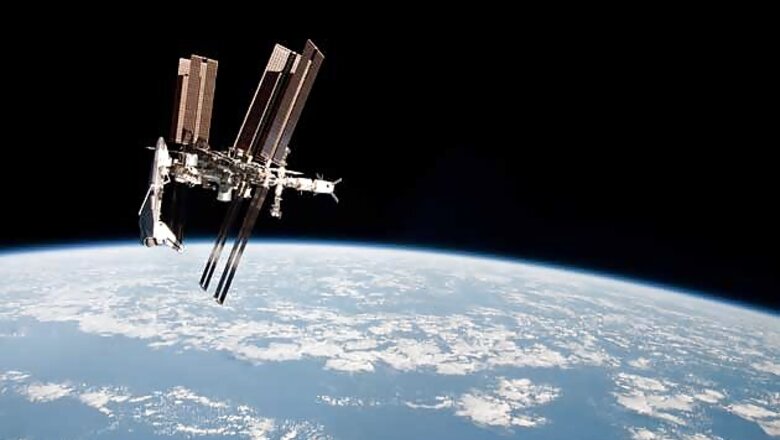
views
Washington: Six International Space Station (ISS) astronauts rushed to safety as a piece of a Russian satellite whizzed by. The astronauts orbiting 320 km above the planet were stirred from their slumber Saturday to jump into emergency escape pods.
They were told by the ground control to scramble into two docked Soyuz spacecrafts in case a piece of a wrecked Russian satellite should smash into the ISS.
The emergency was called off after the chunk passed by at a distance of about 14 km - which in space terms is a near-miss, the Christian Science Monitor reported.
"Everything went by the book and as expected, the small piece of cosmos satellite debris passed the international space station without incident," said a NASA spokesman.
Ground controllers did not believe the ISS was in extreme danger, but ordered the emergency maneuver after determining that the trajectories could intersect.
NASA says there are about 22,000 pieces of sizable space junk - primarily bits of old satellites - orbiting the earth.
The piece that threatened the ISS Saturday morning came from the 2009 collision of the Iridium communications satellite and the Russian Cosmos 2251.
NASA spotted the latest threat too late for the crew to move the ISS safely out of the way, the Monitor said.
It was the third time in 12 years that astronauts were ordered to scramble for safety.
The astronauts - Russians Anton Shkaplerov, Anatoly Ivanishin and Oleg Kononenko, Americans Dan Pettit and Dan Burbank, and Dutchman Andre Kuipers - were awakened about an hour early on what was to have been their day off to get into the Soyuz' crafts.
The spacefarers watched through the portholes to see if they could catch a glimpse of the zooming debris. "Nichevo ... Nothing," one of the Russian cosmonauts said.
If the 450-tonne ISS had been hit and disabled, the astronauts were prepared to detach and descend back to earth in the capsules. Instead, they climbed back into the ISS and "resumed a normal and relaxing weekend", NASA spokesman Rob Navias said.

















Comments
0 comment